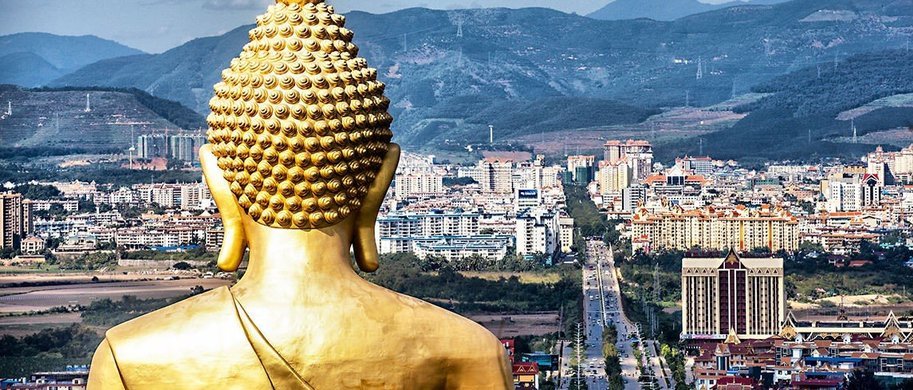
Xishuangbanna is an autonomous prefecture in Yunnan's south. The capital city is Jinghong, the largest settlement in the area and one that straddles the Mekong River, called the Lancang River in Chinese.
The native Thai name Sípsɔ́ng literally means "twelve" and Pǎnnǎ literally means "thousand rice fields". So Sípsɔ́ŋpǎnnǎ = "twelve thousand rice fields".
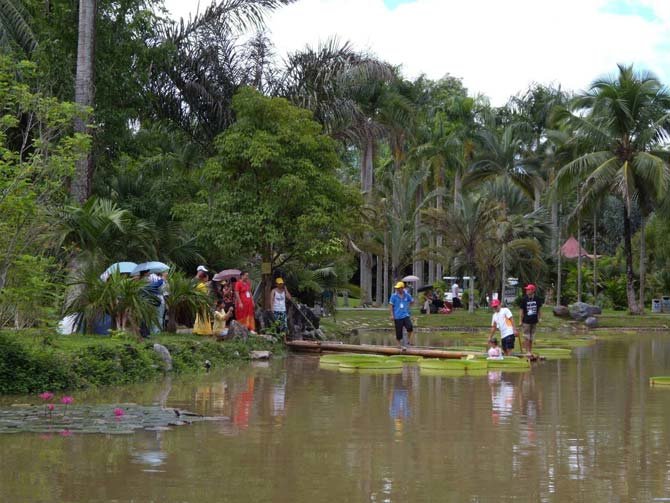
Geography
The prefecture has an area of nearly 20,000 km². Xishuangbanna is the home of the Dai people. The region sits at a lower altitude than most of Yunnan, and has a tropical climate. It is fast becoming a sought after tourist destination.
Biodiversity
Xishuangbanna harbors much of the biodiversity of Yunnan Province, which harbors much of the biodiversity of China. Its tropical climate and its remoteness until recent times accounts for this. In addition to an abundance of plants, Xishuangbanna is home to the last few Asian elephants still in China; the species roamed over a large part of the country even as late as a few hundred years ago. The elephants are protected in a reserve, but the plant diversity is threatened by, and has for five decades been threatened by, the proliferation of rubber plantations which completely destroy the rainforest and replace it with a monoculture of trees originally from Brazil.
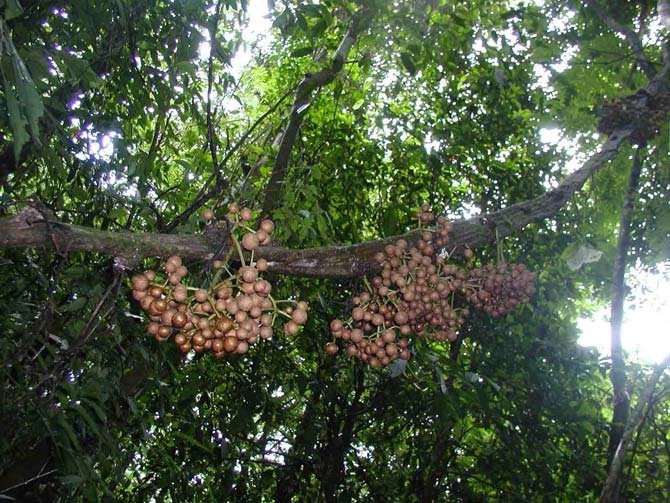
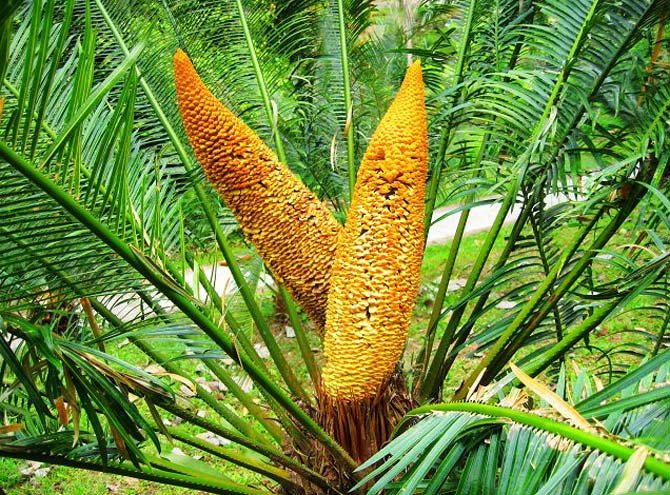
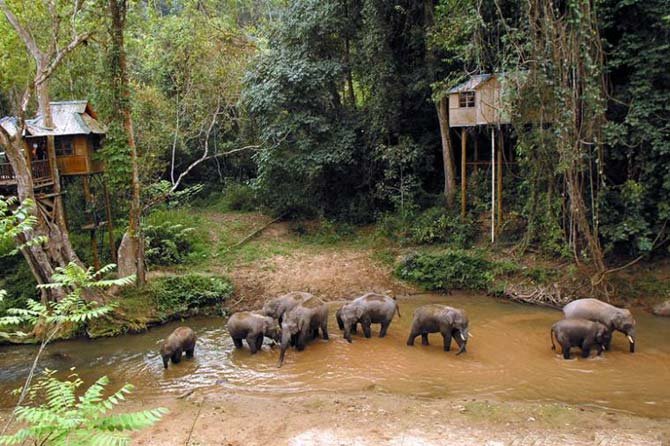
Demographics
In the early 1950s, the Han population of Sipsongpanna was less than 10% of the total; today the Han population may soon overtake the local Dai people. Most of the businesses had been bought by the Han, and commercial signs, which were earlier Tai/Chinese bilingual, are now almost solely in Mandarin. However, the Dai villagers have also prospered as landlords, often renting out their livestock quarters to Han migrants as the area undergoes rapid urbanization.
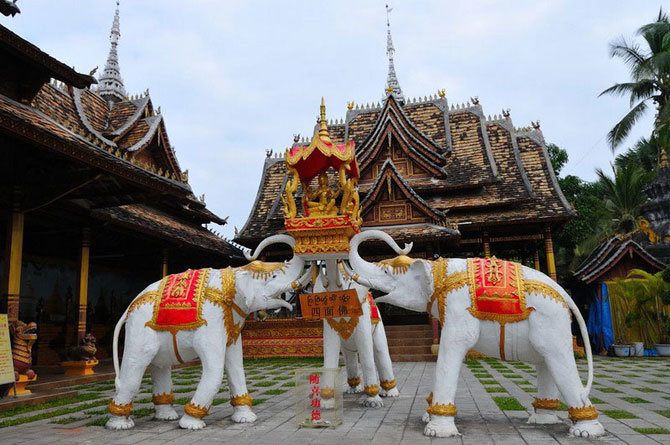
Culture
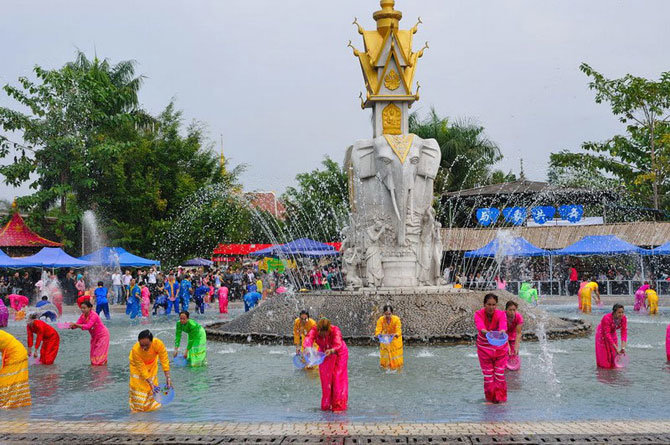
The Six famous tea mountains region located in the prefecture produce some of the most highly regarded Pu-er Tea in the 20th century. Xishuangbanna is rich in nature, historical and cultural resources, noted for its folklore, rain forests, rare plants and wildlife. Its major tourist attractions include Menglun Tropical Botanical Garden, Manfeilong Pagodas (Tanuozhuanglong), Jingzhen Pavilion, Wild Elephant Gully and Dai people's village at Ganlanba.
The well-known traditional festival is the ethnic Dai's Water-Splashing Festival. It lasts for three days from April 13 to 15. Besides the water festival event it also consists of some other events such as Dragon boat races, firing of indigenous missiles and flying Kongming Lamps.
Transport
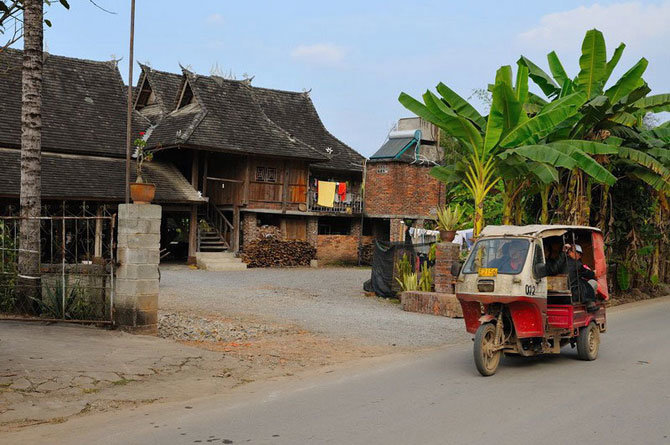
Since the opening of the Xishuangbanna Gasa Airport (formerly "Jinghong International Airport") in 1990, traveling to Xishuangbanna by air has become more popular and convenient and there are daily flights connecting Xishuangbanna with Kunming City. The area also has air connections with Dali, Chengdu and Bangkok. The Xishuangbanna Airport is 6 km south of Jinghong City.
There are also bus routes to places all over Yunnan and neighboring provinces.
In October 2010, plans were announced for a 530 km railway linking Xishuangbanna to Vientiane in Laos;connections to Thailand are also possible.
(wikipedia)
- 3316 reads
